The Fish You’ll Eat Tomorrow
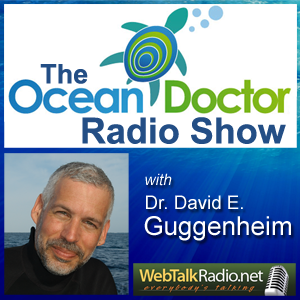 |
May 9, 2011: They are the maddening questions that haunt us when eating seafood: What fish is safe to eat? What fish is sustainable? Is farmed better than wild caught? Our guest is Marianne Cufone, now Executive Director of the Alliance for Sustainable Aquaponics, with sound advice on eating seafood and a glimpse of the fish and other food you’ll eat tomorrow. Also: The Ocean Doctor’s next expedition and more about the film, “Cuba: The Accidental Eden.”
The Ocean Doctor airs weekly on WebTalkRadio.net. Want to listen on your iPod, iPhone or mp3 player? Download the mp3 file or subscribe on iTunes and don’t miss a single episode. See the complete list of episodes.
Follow The Ocean Doctor on Twitter — Become a Fan on Facebook!
Submit a question and I’ll try to answer it on the air. Even better, record your question or comment on our special message line and I might play it on the air. Call: (805) 619-9194. You can also leave questions and comments for this episode below.
Like the show? Learn how to become a sponsor.
Podcast: Play in new window | Download
The Fish You’ll Eat Tomorrow
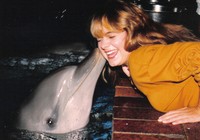
Marianne Cufone, Executive Director of the Alliance for Sustainable Aquaponics, receiving kudos from her friend, Speedy
Marianne Cufone is now the Executive Director of the Alliance for Sustainable Aquaponics. At the time of this interview, she was still Food & Water Watch’s Fish Program Director. She has been involved in natural resources management, and specifically fisheries management for the past 15 years. Before coming to Food & Water Watch, she was the Managing Partner of Environment Matters, an environmental consulting firm in Tampa, Florida. Previously, Ms. Cufone was a Program Manager for a national conservation organization. She has worked with law firms, educational facilities, government entities and organizations throughout the United States on a wide range of issues including: fisheries, pollution, impacts mitigation, stewardship and outreach. She also teaches courses and guest lectures at assorted academic institutions. She currently maintains positions on assorted natural resource advisory boards for Hillsborough County, the State of Florida and the federal government and sits on several non-profit Boards of Directors. Ms. Cufone received her J.D., Cum Laude from the University of Miami School of Law through a joint Masters program in Marine Science and Policy at the Rosenstiel School of Marine and Atmospheric Science, University of Miami. She received her BA, from Boston College in Chestnut Hill, Massachusetts.
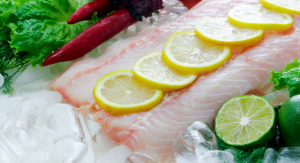
Marianne Cufone talks about the fish you'll eat tomorrow. And where it comes from may surprise you...pleasantly.
Alliance for Sustainable Aquaponics (ASA) is a collaborative group of researchers, business owners, non-profit organizations and interested members of the public working to further Recirculating Aquaculture Systems (RAS) in the United States through research, education, legislative work and advocacy. We believe that RAS, closed-looped and biosecure aquaculture operations, are the best option to meet our country’s need for a clean, green, sustainable, healthy seafood source to supplement our wild fisheries.
In January 2009, Food & Water Watch hosted a Sustainable Aquaculture Summit in Washington D.C., a collaborative discussion among leading businesses, researchers, health professionals and government officials to discuss in-land, closed-loop recirculating aquaculture systems (RAS). The ASA was founded by several of the individuals in attendance at the Summit with the purpose of working to further RAS in the United States through research, education, legislative work and advocacy.
RAS are closed-loop systems that retain and treat the water within the system, reducing discharge of fish waste, excess food, fish escapes and the need for antibiotics or chemicals used to combat disease. Recirculating aquaculture is a cleaner, greener, more sustainable method of fish production than the open water aquaculture systems currently being pushed in the U.S.
Links
- Alliance for Sustainable Aquaponics
- Food and Water Watch
- Smart Seafood Guide (by Food and Water Watch)
- Institute for Ocean Literacy (Download “Small Fry” and more of Mark Holmes’ great music!)

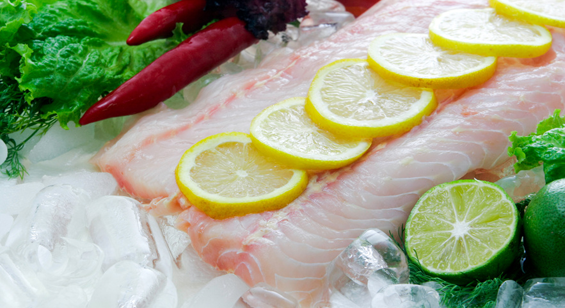

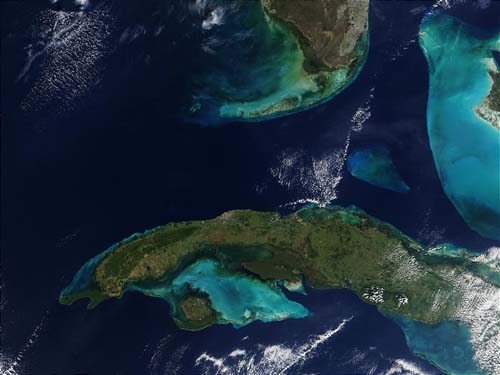

Leave a Reply
Want to join the discussion?Feel free to contribute!